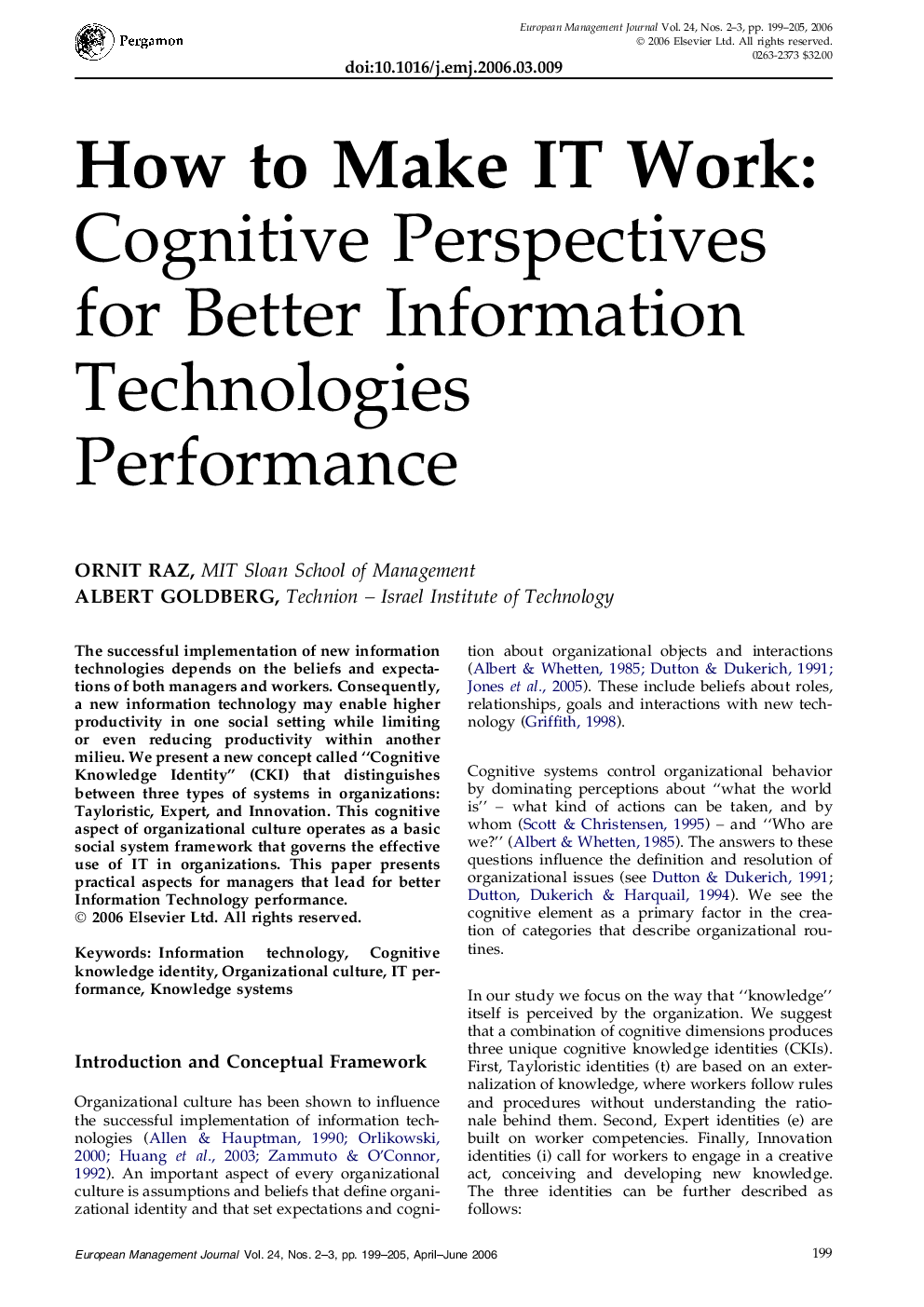| Article ID | Journal | Published Year | Pages | File Type |
|---|---|---|---|---|
| 1015387 | European Management Journal | 2006 | 7 Pages |
Abstract
The successful implementation of new information technologies depends on the beliefs and expectations of both managers and workers. Consequently, a new information technology may enable higher productivity in one social setting while limiting or even reducing productivity within another milieu. We present a new concept called “Cognitive Knowledge Identity” (CKI) that distinguishes between three types of systems in organizations: Tayloristic, Expert, and Innovation. This cognitive aspect of organizational culture operates as a basic social system framework that governs the effective use of IT in organizations. This paper presents practical aspects for managers that lead for better Information Technology performance.
Related Topics
Social Sciences and Humanities
Business, Management and Accounting
Business and International Management
Authors
Ornit Raz, Albert Goldberg,
